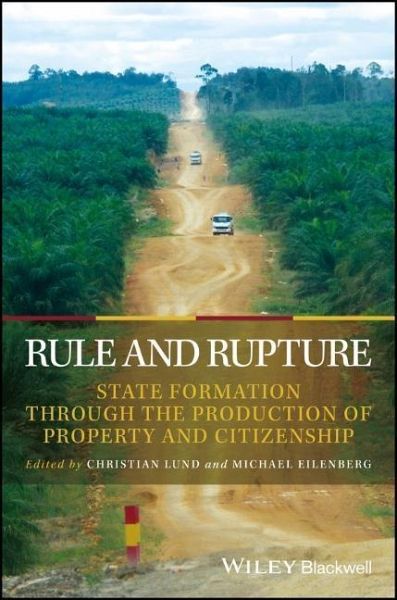
Rule and Rupture
State Formation Through the Production of Property and Citizenship
Herausgegeben: Lund, Christian; Eilenberg, Michael
Versandkostenfrei!
Versandfertig in über 4 Wochen
33,99 €
inkl. MwSt.
Weitere Ausgaben:

PAYBACK Punkte
17 °P sammeln!
Rule and Rupture - State Formation Through the Production of Property and Citizenship examines the ways in which political authority is defined and created by the rights of community membership and access to resources._ Combines the latest theory on property rights and citizenship with extensive fieldwork to provide a more complex, nuanced assessment of political states commonly viewed as "weak," "fragile," and "failed"_ Contains ten case studies taken from post-colonial settings around the world, including Cambodia, Nepal, Indonesia, Afghanistan, Rwanda, Somalia, Democratic Republic of Congo,...
Rule and Rupture - State Formation Through the Production of Property and Citizenship examines the ways in which political authority is defined and created by the rights of community membership and access to resources.
_ Combines the latest theory on property rights and citizenship with extensive fieldwork to provide a more complex, nuanced assessment of political states commonly viewed as "weak," "fragile," and "failed"
_ Contains ten case studies taken from post-colonial settings around the world, including Cambodia, Nepal, Indonesia, Afghanistan, Rwanda, Somalia, Democratic Republic of Congo, Colombia, and Bolivia
_ Characterizes the results of societal ruptures into three types of outcomes for political power: reconstituted and consolidated, challenged, and fragmented
_ Brings together exciting insights from a global group of scholars in the fields of political science, development studies, and geography
_ Combines the latest theory on property rights and citizenship with extensive fieldwork to provide a more complex, nuanced assessment of political states commonly viewed as "weak," "fragile," and "failed"
_ Contains ten case studies taken from post-colonial settings around the world, including Cambodia, Nepal, Indonesia, Afghanistan, Rwanda, Somalia, Democratic Republic of Congo, Colombia, and Bolivia
_ Characterizes the results of societal ruptures into three types of outcomes for political power: reconstituted and consolidated, challenged, and fragmented
_ Brings together exciting insights from a global group of scholars in the fields of political science, development studies, and geography



